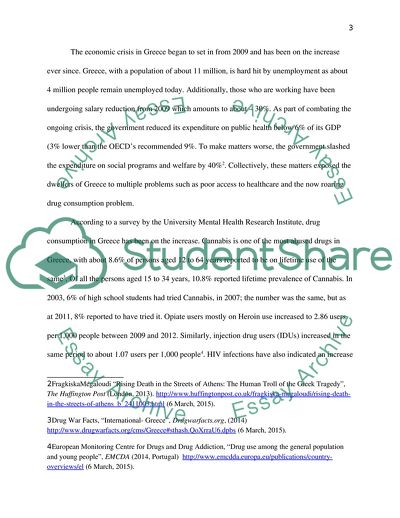Cite this document
(Addictions in the Era of Economical Destabilization Coursework Example | Topics and Well Written Essays - 3000 words, n.d.)
Addictions in the Era of Economical Destabilization Coursework Example | Topics and Well Written Essays - 3000 words. https://studentshare.org/anthropology/1863165-addictions-in-the-era-of-economical-destabilization-how-much-economical-crisis-has-affected-the-drug-addicts-in-central-athens
Addictions in the Era of Economical Destabilization Coursework Example | Topics and Well Written Essays - 3000 words. https://studentshare.org/anthropology/1863165-addictions-in-the-era-of-economical-destabilization-how-much-economical-crisis-has-affected-the-drug-addicts-in-central-athens
(Addictions in the Era of Economical Destabilization Coursework Example | Topics and Well Written Essays - 3000 Words)
Addictions in the Era of Economical Destabilization Coursework Example | Topics and Well Written Essays - 3000 Words. https://studentshare.org/anthropology/1863165-addictions-in-the-era-of-economical-destabilization-how-much-economical-crisis-has-affected-the-drug-addicts-in-central-athens.
Addictions in the Era of Economical Destabilization Coursework Example | Topics and Well Written Essays - 3000 Words. https://studentshare.org/anthropology/1863165-addictions-in-the-era-of-economical-destabilization-how-much-economical-crisis-has-affected-the-drug-addicts-in-central-athens.
“Addictions in the Era of Economical Destabilization Coursework Example | Topics and Well Written Essays - 3000 Words”. https://studentshare.org/anthropology/1863165-addictions-in-the-era-of-economical-destabilization-how-much-economical-crisis-has-affected-the-drug-addicts-in-central-athens.


